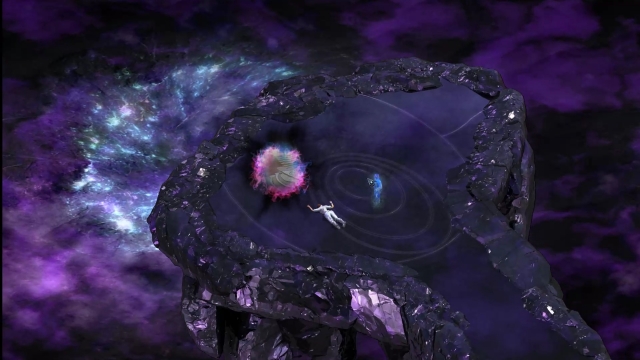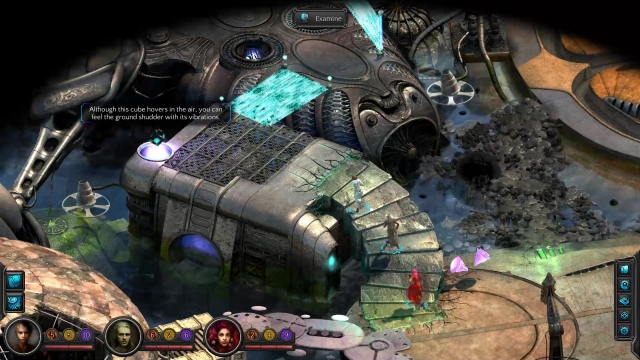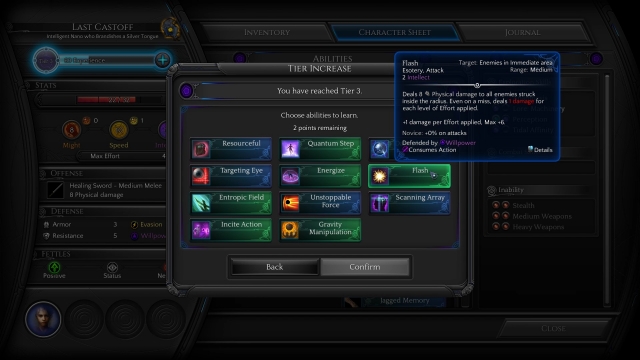
Torment: Tides of Numenera Review
inXile’s spiritual successor to the classic RPG Planescape: Torment takes you on a journey through a weird, strange land full of interesting characters, peculiar technology and an exploration of consciousness and the self. How does it fare?
Torment: Tides of Numenera takes place in a setting known as the Ninth World, a billion years in the future, where everything is all a little alien and unfamiliar. Everything in the world is built on and scavenged from the detritus of countless prior long-gone civilisations, with the lack of knowledge and understanding that comes with that. The numenera of the title being the remnants of those who came before.

The game itself marks a continuation of the recent resurgence in party-based RPGs, coming as it does after the well received Tyranny and Pillars of Eternity. It even shares Pillars’ engine, offering some great visuals to go along with some thought-provoking writing.
You take the role of the Last Castoff, starting the game in freefall whilst trying to come to terms with what is happening. You’re the latest creation of The Changing God, a being that has cheated death by learning how to transfer his consciousness into other bodies. His discarded shells — the castoffs — gain their own consciousness and identity as they are abandoned.
You awaken in the city of Sagus Cliffs with many questions as to who and where you are. You are also made aware of an enemy, the Sorrow who is trying to eliminate all castoffs for some reason. This motivates your initial steps into the Ninth World as you try to piece together events.

Numenera however is all about the world and its inhabitants. As you talk to the people of Sagus Cliffs and receive sidequests you piece together how this often peculiar place works and how inexplicably connected you are to it and its populace.
The bulk of the game builds out on the concept of being a castoff and what that means, are you still part of the Changing God? are you a distinct identity? his child? an equal? There is a great deal of interesting philosophy and thought-provoking subject matter throughout. From the castoffs themselves, through to the abstract and often confusing nature of the world itself.
Quests often have multiple solutions, sometimes as many as half a dozen distinct solutions depending on how you build your character. Those initial character choices affect the campaign in interesting ways. Taking the mind reading trait, for example, opens up new dialogue options as well as adding additional insight into how NPCs are really feeling.
The technology puzzles, however, can be a little head-scratching. Relying on some frustrating trial and error to progress as the game doesn’t really give great feedback on what you are doing. These are a relatively minor portion of the game but worth mentioning.

Be prepared for a lot of reading too, whilst the initial encounters with major characters have some voicework the bulk of the game is text only. The writing, on the whole, is extremely well put together however and is a joy to read. With other party members, in particular, being well written and quite memorable, from the rather detached literally multidimensional mind of Callistege to the blunt but honourable assassin, Matkina.
Also of note is that you can get through almost the entire game with no combat if that’s how you want to play it, it’s entirely possible to talk your way out of conflict and the game has an unconventional approach to experience that helps facilitate this. You don’t get experience for combat, rather you obtain it from completing quests, interacting with the game world and from engaging in more involved dialogue options. This encourages engagement with the setting in a unique way and eliminates the need for “grinding” out levels to compete in battle.
The game features a unique approach to performing tasks and interacting both in dialogue and combat with a skill system based around your core stats. In Numenera those are might, speed and intellect and they act like a pool you can spend from, in combat, for example, a move might use intellect, when you activate it you can spend points to increase the damage or success chance.
Once spent they are gone until you rest, this works the same way in and out of combat. It adds a subtle layer of strategy to proceedings that is appreciated, knowing when to keep some in reserve or just splurging to hit 100% success matters more than you’d expect.

Combat itself is a fairly typical turn-based affair, where each character has a movement and an action phase per turn, with various moves being able to synergise well with other party members. Unusually your normal actions are also available here, like talking to enemies or interacting with the environment.
The combat is unremarkable but it does the job. It’s clearly not the focus of the game though, it’s dense intricate world and its inhabitants are the star here and it wants to get you invested in that evocatively described world, as bizarre and morally ambiguous as it is at times.
Technically the game is sound with some lovely art and sound design. Some areas feel more cohesive than others but it succeeds in giving an otherworldly feel that somehow makes sense. There aren’t a lot of locations in the game but they are dense with things to do and the art and writing make the world feel far larger than the parts you actually visit.
Torment: Tides of Numenera is certainly not for everyone, and its reliance on world interaction and a quirky, abstract but grounded world gives it a distinct feel. If you want a thought provoking, interesting world to spend some time in then you can do far worse.
Torment: Tides of Numenera (Reviewed on Windows)
This game is great, with minimal or no negatives.
inXile’s spiritual successor to Planescape: Torment doesn’t quite reach the high notes of that game but it does tell an interesting story and explores themes not really touched on frequently in gaming. If you are after a new RPG with an evocative, if grim, setting then this is for you.











COMMENTS